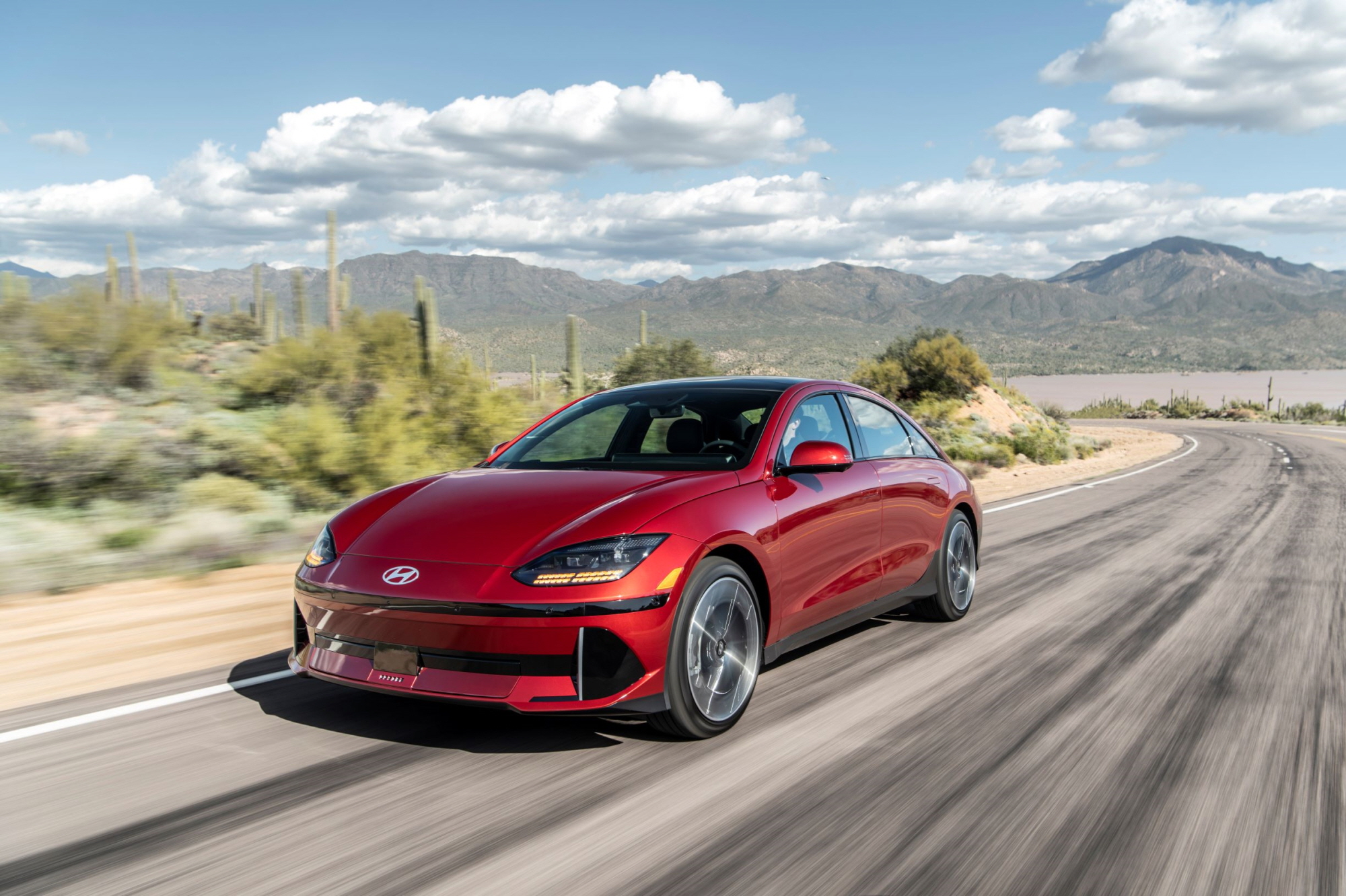
Hyundai Motor Group has proven its top-notch safety in the United States.
On the 26th (Monday) local time, the Insurance Institute for Highway Safety (IIHS) announced its collision evaluation results, stating that six models have been awarded the ‘Top Safety Pick+’ (TSP+) rating, while ten other models received the ‘Top Safety Pick’ (TSP) rating, as revealed on the 28th (Wednesday).
The total of 16 vehicles receiving TSP ratings or higher from Hyundai Motor Group includes seven models from Hyundai and Genesis each, as well as two models from Kia, making it the highest among global automotive groups.
The models that received the TSP+ rating include ▲Ioniq 6 ▲Kona from Hyundai and ▲G80 Electric Model ▲GV80 ▲GV60 from Genesis, along with Kia’s ▲Telluride.
The vehicles that were awarded the TSP rating are ▲Elantra (known as Avante in the local market) ▲Ioniq 5 ▲Tucson ▲Palisade ▲Santa Cruz from Hyundai’s five models, as well as ▲G90 ▲G80 ▲GV70 ▲GV70 Electric Model from Genesis’ four models, and Kia’s ▲Sportage.
The Telluride has demonstrated excellent crash safety performance, achieving the highest rating across all evaluation criteria again this year, just like last year.
This collision evaluation result is significant as it meets the new, stricter evaluation standards introduced this year.
Vehicles exhibiting the highest safety levels receive the TSP+ rating, while those with good performance receive the TSP rating.
This time, stricter criteria have been introduced regarding rear-seat occupant protection and pedestrian collision prevention systems, making it more challenging to achieve a high rating.
In the moderate front overlap evaluation, additional back-seat dummies (human models) were placed to check the injury risk to back-seat passengers during frontal collisions, and to attain the TSP+, the vehicle must receive an ‘acceptable’ rating or higher in this category.
Furthermore, the side collision evaluation’s TSP qualification requirements have become more stringent. Previously, a vehicle could receive TSP if it obtained an ‘acceptable’ rating or higher, but this year, both TSP and TSP+ require a ‘good’ rating.
Additionally, in the front small overlap crash evaluation, while separate ratings were previously issued for the driver-side and passenger-side, the IIHS will now combine these assessments into a single score, assigning the lower rating of the two as the final grade.
Also, for pedestrian collision avoidance evaluations, previously, separate tests for daytime and nighttime were conducted, and a TSP designation was awarded if the vehicle received an ‘advanced’ grade or higher during the daytime; now, vehicles must achieve an ‘acceptable’ rating or higher in a combined test for both day and night to be eligible for TSP+/TSP.
To receive a TSP+ rating, a vehicle must earn the top ‘good’ rating in all three crash safety categories, which include ▲front small overlap ▲moderate front overlap ▲side collision.
Moreover, the vehicle must also achieve an ‘acceptable’ rating or higher in the day/night front collision prevention system test (for vehicles and pedestrians), and the headlight evaluation must meet ‘acceptable’ or higher grades across all trims of the vehicle.
The TSP rating requires obtaining ‘good’ ratings in two categories out of the three crash safety evaluations – ▲front small overlap and ▲side collisions, while in the moderate front crash evaluation, the vehicle must receive a ‘good’ rating excluding the new rear-seat passenger assessment.
In addition, the vehicle must achieve an ‘acceptable’ rating or higher in the day/night front collision prevention system tests (for vehicles and pedestrians), and the headlight evaluation must meet ‘acceptable’ or higher ratings across all trims.
IIHS President David Harkey praised, “The TSP+/TSP award-winning models this year stand out and provide top-level protection for both vehicle occupants and vulnerable pedestrians.”
This year, a total of 71 models were selected: 22 received the TSP+ rating, and 49 received the TSP rating.
Established in 1959, IIHS is a non-profit organization that annually evaluates and publishes comprehensive ratings on the crash safety performance and crash prevention capabilities of vehicles released in the U.S. market.
Brian Latouf, Global Chief Safety & Quality Officer of Hyundai and Kia, stated, “We are proud to have demonstrated the highest level of safety in the enhanced IIHS crash tests,” adding, “Hyundai Motor Group remains committed to prioritizing customer safety and ensuring the well-being of both passengers and pedestrians.”
Contact: Lee Sang-jin daedusj@autodiary.kr

